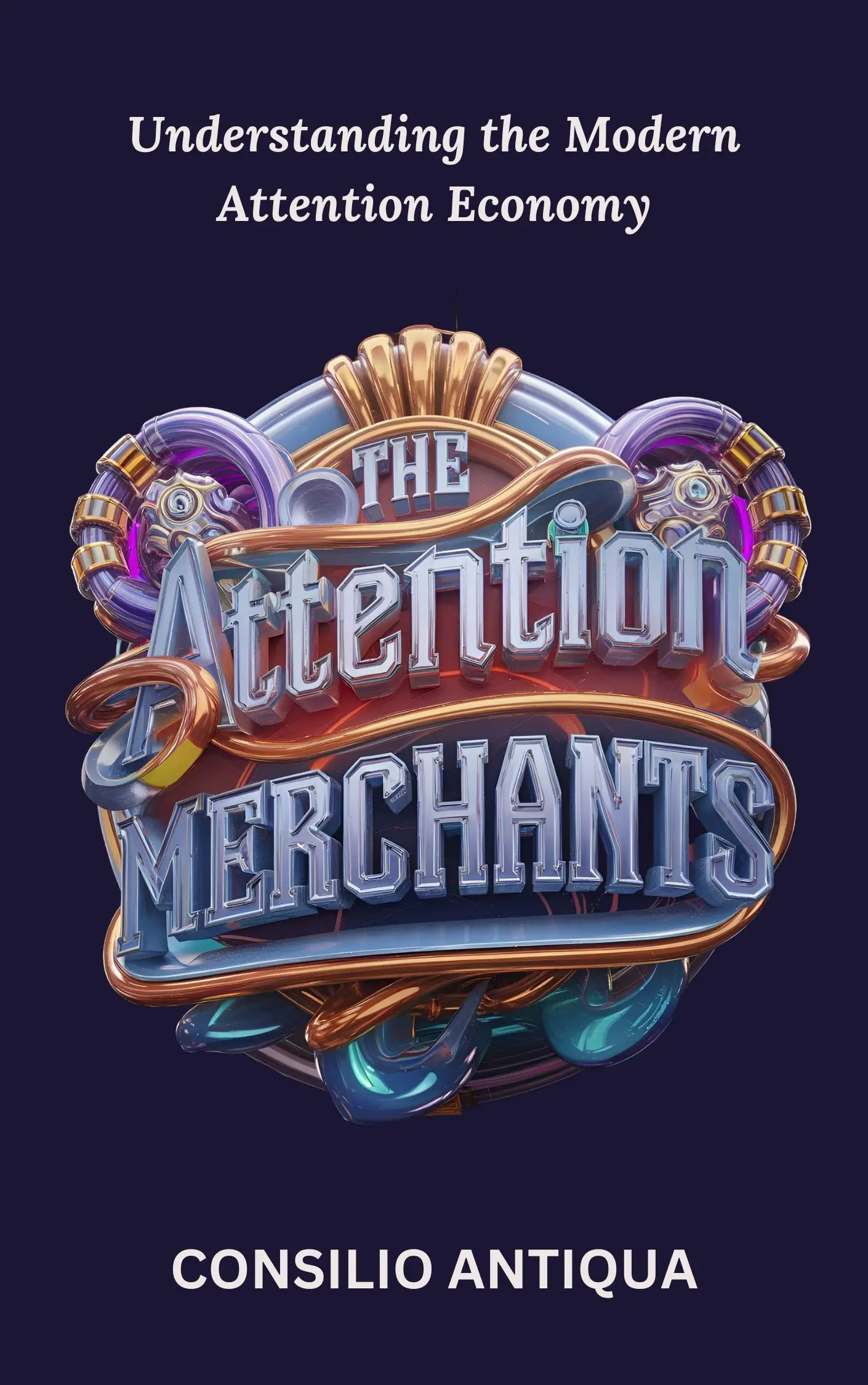
The Attention Merchants | Chapter 1. Introduction to the Attention Economy
Chapter 1. Introduction to the Attention Economy
Imagine Anya, a college student trying to finish a research paper. Her laptop is open, the document filled with half-written paragraphs. But her focus keeps fracturing. A notification pops up – a friend tagged her in a meme. She clicks, scrolls through the comments, then remembers she needs to check her email. A news alert flashes across the screen – a breaking story about a celebrity scandal. Anya clicks again, her paper forgotten. Sound familiar? This constant tug-of-war for our attention is the defining feature of the modern age. We live in what experts call the "attention economy," a world where our focus has become a valuable commodity, traded and fought over like oil or gold.
The idea of attention as a resource isn't new. Think back to the 1800s, when newspapers started relying on advertising to survive. Those eye-catching headlines and clever slogans were designed to grab your attention and keep you reading, so you'd also see the ads for soap or department stores. Then came radio, with its catchy jingles and sponsored programs, followed by television, with its captivating commercials that interrupted your favorite shows. Each new technology brought with it a more sophisticated way to capture and hold our focus.
But the internet and smartphones have taken the attention economy to a whole new level. Now, instead of just competing with other newspapers or TV channels, companies are vying for your attention against every other app, website, and notification on your device. And they're using incredibly powerful tools to do it. Algorithms track your online activity, learning what you like and dislike, then serve up a personalized stream of content designed to keep you hooked. Social media feeds are engineered to be addictive, with endless scrolling and notifications that trigger a dopamine rush in your brain.
The major players in this attention economy are the tech giants – companies like Google, Facebook, and Amazon. They've built vast empires by collecting our data and selling our attention to advertisers. Every time you click on a link, watch a video, or scroll through a feed, you're generating valuable information about your preferences and behaviors. This information is then used to target you with ads that are more likely to grab your attention and influence your choices.
Think about the last time you were online. Did you notice how websites use bright colors, flashing banners, and autoplay videos to capture your eye? Have you ever felt compelled to keep clicking "next episode" on Netflix, even though it's past your bedtime? These are all deliberate strategies designed to exploit our psychological vulnerabilities and keep us engaged. Even the news we consume is often tailored to grab our attention, with sensational headlines and emotionally charged stories that trigger our fear, anger, or outrage.
This constant bombardment of information and stimulation can have a profound impact on our lives. Studies have shown that chronic multitasking and digital distractions can impair our ability to focus, learn, and remember information. The constant stream of notifications and updates can also lead to stress, anxiety, and even depression. Some experts even argue that social media can be addictive, with users experiencing withdrawal symptoms when they try to disconnect.
The ethical implications of the attention economy are also becoming increasingly apparent. Is it right for companies to collect and analyze our data without our full understanding or consent? Should we be concerned about the potential for manipulation and exploitation, especially when it comes to vulnerable populations like children and teenagers? These are complex questions that society is still grappling with.
As we navigate this new digital landscape, it's crucial to become more aware of the forces vying for our attention. We need to understand the strategies being used to capture our focus and the potential consequences of constant distraction. By becoming more mindful of our relationship with technology, we can start to reclaim control over our attention and make conscious choices about how we spend our time and energy. The future of our well-being, our relationships, and even our democracy may depend on it.
